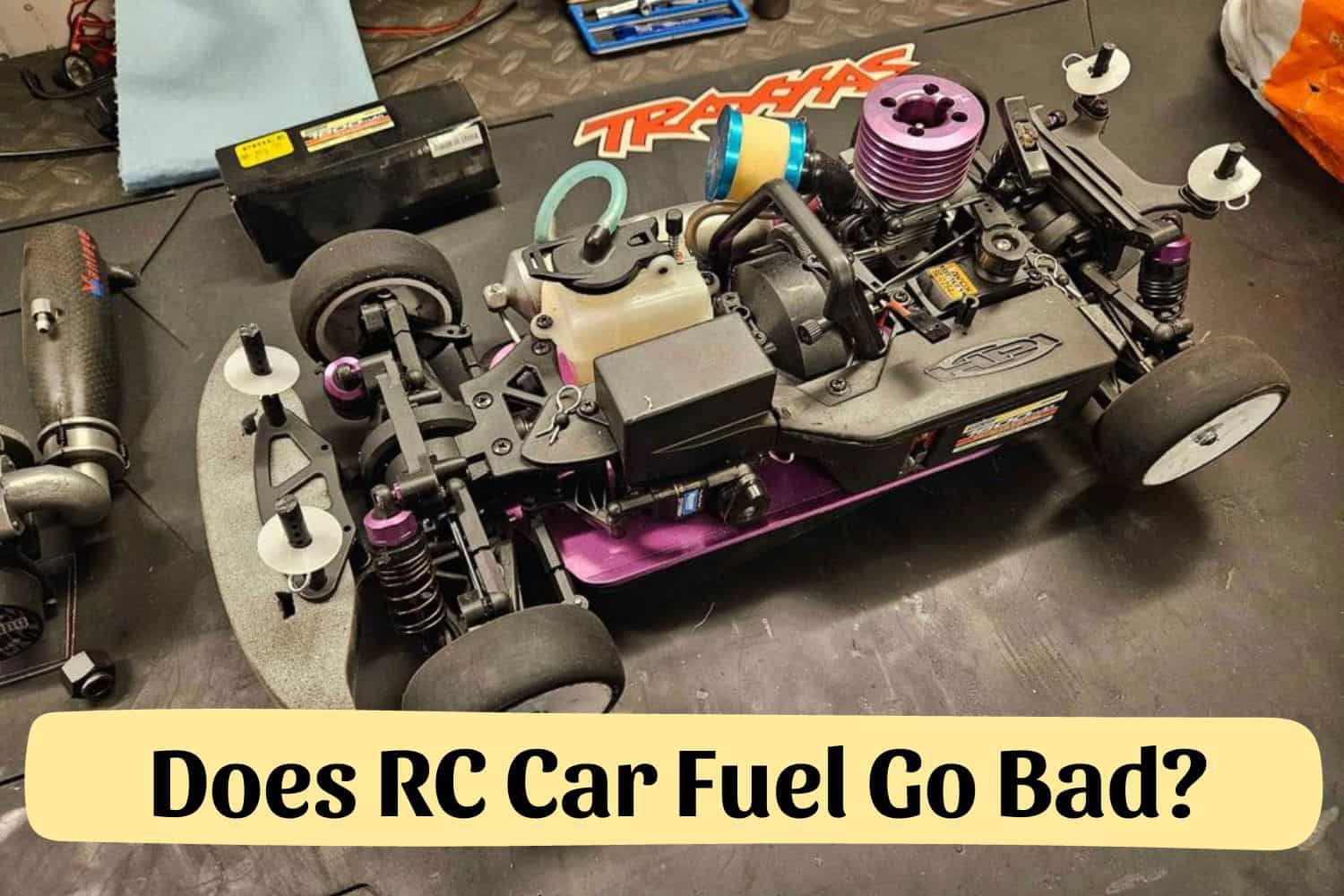Does RC car fuel go bad? Get informed before you buy your next batch of fuel. Learn about shelf life, storage conditions, and what can happen if your RC car fuel goes bad.
Does RC Car Fuel Go Bad? Exploring the Answers
Are you a fan of RC cars and their thrilling adventures around the track? If so, you probably know they need fuel to get them rolling. But as we all know, even the best fuel needs to be replaced eventually.
So your burning question might be: does RC car fuel go bad over time?
The answer is: Yes, It’s nitromethane, so it will attract moisture and go bad.
Well, today’s post is just for you – we’re going to explore this very topic in-depth and see what the answer is!
We’ll talk about signs that signal your RC car fuel has gone bad, how long it can last when stored correctly, and much more. So if you love taking your RC cars out for a spin on those sunny afternoons or competitive weekend races – pay attention!
Discover the Exciting World of Non-Electric RC Vehicles
Unleash the power of glow and nitro engines! Dive into the fascinating world of non-electric radio-controlled vehicles that operate just like regular gas-powered automobiles. But wait, there’s more!
Get ready to explore the thrill of gas-powered engines with spark plugs. These non-electric RCs are the real deal.
Know Your Engine: Does it Glow?
Before you embark on your RC adventure, it’s crucial to know what kind of engine your vehicle has. If you’ve purchased a 1:8, 1:10, 1:12, or 1:18 scale model from a hobby shop, chances are you have a glow engine that runs on nitro fuel.
Don’t let the term “gas” confuse you, as it likely does not use regular gasoline. When in doubt, consult your manufacturer’s instructions or seek guidance from local hobby shop experts or RC club members.
Unlock the Secrets of Nitro Fuel
Nitro fuel, the lifeblood of your nitro engine, is a blend of methanol, nitromethane, and oil. It’s conveniently available in hobby shops, but not all nitro fuels are created equal.
The percentage of nitromethane in the fuel can vary, typically ranging from 10 percent to 40 percent, with 20 percent being the norm. Consult your purchase manual to determine the recommended percentage by the manufacturer.
Oil Matters: Find the Perfect Nitro Fuel
The magic of castor oil or synthetic oil lies within the nitro fuel. It provides vital lubrication and cooling.
The type and quantity of oil directly impact whether the fuel is more suitable for RC cars and trucks or RC aircraft. Choose wisely to optimize your RC experience.
No Glow? Embrace the Power of Gas
For those seeking the true gas-powered RC experience, look no further. Engage in the sheer adrenaline rush of RC vehicles that are 1:5 in scale or larger.
These powerful machines roar to life with spark plugs and run on a mixture of gasoline and motor oil. It’s just like driving a regular automobile but on a miniature scale.
Different Types of Oil in Nitro Fuel
Find out how oil enhances performance and protects your RC engine. Nitro fuel can contain either castor oil, synthetic oil, or a combination of both.
While castor oil forms a beneficial lubricating film at high temperatures, it can also get messy. On the other hand, synthetic oil excels at lower temperatures but offers less protection when things heat up.
Perfect Oil Blend for Your RC Vehicle
Discover why nitro fuel for cars usually opts for a castor oil or castor oil / synthetic oil mix. RC car engines tend to run hotter or have less efficient cooling systems than their aircraft counterparts.
However, RC aircraft fuel generally utilizes synthetic oil or a castor oil / synthetic oil mix.
Percentage Code for Optimal Oil Content
Learn about the range of oil percentages and the typical levels found in nitro fuel. The percentage of oil can vary from 8% to 25%, but the average hovers between 15% and 20%.
Delve into the ongoing debate surrounding the need for higher oil percentages for RC aircraft compared to RC cars. Understand the factors influencing this decision, such as throttle usage and racing intensity.
Other Types of RC Fuel Options
Unleash the full power of your RC vehicle with fuel options that go beyond the ordinary. While many RC enthusiasts are familiar with the typical 10% to 40% nitro blends, did you know that you can now find fuels with an impressive 60% nitro content?
For those seeking a different kind of power, FAI fuel is the option, which contains 0% nitro.
When it comes to RC cars and trucks, the preferred nitro blends range from 10% to 40%. However, RC airplanes may require lower nitro blends, such as 5% to 10%. But the excitement doesn’t stop there!
For those looking to explore unconventional paths, some engines run on regular gasoline mixed with motor oil or diesel fuel. These engines, distinguished by their spark plugs instead of glow plugs, offer a unique and thrilling RC experience.
And let’s not forget about the cutting-edge jet-turbine engines. These specialty models utilize propane or kerosene as fuel, propelling your RC adventures to new heights.
It’s important to note that these specialty models are not the typical ones you’ll find in hobby shops. They represent the pinnacle of radio-controlled craftsmanship, designed for those who demand the utmost in performance and innovation.
So why settle for the ordinary? Take your RC experience to the next level with the wide variety of fuel options available to you. Discover the possibilities and unleash the full potential of your RC vehicle today.
Does RC Car Fuel Go Bad? Shelf Life of RC Car Fuel
One of the most commonly asked questions among RC enthusiasts is whether their fuel can go bad. The short answer is yes, it can.
The shelf life of nitro fuel varies and depends on factors such as storage conditions and the type of oil used in the blend. But typically, nitro fuel can last around 6 months if stored properly.
To ensure the longevity of your RC fuel, keep it in a cool, dry place and avoid exposure to extreme temperatures. It’s also essential to use proper storage containers that are air-tight to prevent moisture from getting in and causing the fuel to degrade.
So don’t let your fuel go bad and ruin your RC experience. Take care of it as you would with any other valuable asset, and it will continue to provide the power and excitement you crave.
Just remember to follow proper storage guidelines and keep a close eye on expiration dates for optimal performance.
The Bottom Line
In conclusion, RC car fuel is more than just a necessary component of your radio-controlled vehicle. It’s the key to unlocking endless possibilities and unleashing your inner racer.
Whether you prefer the traditional nitro blends or want to try out more exotic options, there’s a fuel out there that will cater to your needs and take your RC experience to new heights.
So go ahead and rev up those engines, because with the right fuel, the sky’s the limit. Happy racing!
Thanks for reading our article Does RC Car Fuel Go Bad? If you want to know more information, visit our website here.
Read more:

